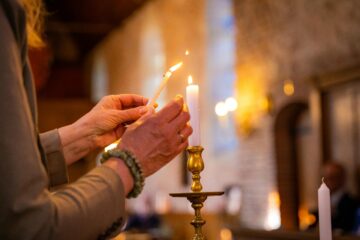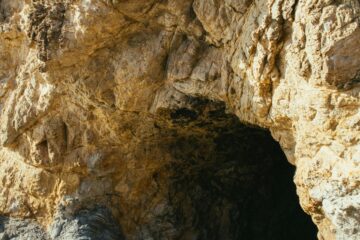Protopresbyter Vasileios Kalliakmanis, Professor of the Theological School, A.U.Th.
In recent years, the way of life in large cities has taken a turn for the worse. Contamination of the atmosphere, the accumulation of waste, electromagnetic and noise pollution, lack of greenery and the ecological crisis, the distances from home to work, traffic congestion, as well as estrangement and isolation from other people despite the abundance of social net-working platforms, all add to the already heavy atmosphere. Permanent residents are abandoning the centers of cities in search of an oasis where they can breathe. This is apparent from the unprecedented building activity in the townships and hills around large cities, as well as the increase in traffic on the highways and in coastal towns on holidays, festivals and breaks.
Yet these attempts to get away don’t always ensure the spiritual repose and inner calm that’s being sought. Holidays without spiritual awakening and the nourishment of grace leave a large inner void which is seldom filled, despite frenzied efforts to do so. Questions arise such as: can people be refreshed spiritually, not just bodily, by taking a holiday? Does our frantic and anxious way of life perhaps cause us to overlook opportunities which could be a source of inspiration and spiritual growth? Might contact with nature help in this direction?
People are linked directly to the natural environment, not only because it nourishes and supports us but also through the foundation of civilization. The Ionian philosophers claimed that there were four elements in nature: fire, air, water and earth. Through the antitheses of these elements there occurs a succession of recurring phases and ‘most excellent harmony’, as Heraclitus put it. Aristotle added a fifth element to this quartet, the ether, which became established as the quintessence. It was thought that this element was to be found in the upper strata of the heavens and was unbegotten, imperishable, ageless, everlasting and unalterable. Through their insight and intuition the philosophers reached high levels of investigation and, in a way, prepared the world for the reception of the Christian revelation.
The beauty of nature can contribute to spiritual enrichment. Of course, how we look at nature is of great importance: as a heedless and blasé visitor or as a sensitive enquirer? In the hymns of the Church, for example, the beauty of creation is described in a poetic and colorful manner and it’s associated with quality of life. The natural environment exists for our sake and draws us up to the Creator. ‘The heavens declare the glory of the Lord and the firmament proclaims the work of his hands’ (Ps. 18, 1) writes the psalmist, while the Greek Nobel prize-winning poet Odysseas Elytis talks about ‘the Creator of the clouds and waves, who sleeps within us’. (Axion Esti, the Passions, Reading 2, 6).
But if the tangible beauty of created things is to lead us to the Maker and Creator of all things and to awaken the person formed ‘in the image of God’, we need tried and tested spiritual sensibilities. Internal cleansing from the heavy weight and murk of the corrosive passions. In this case, the material creation, which constitutes an expression of God’s providential action towards his most perfect creature, can become a source of inspiration.
The hymnographers who have a pure heart link the magnificence of the creation to the Creator. Lovers of divine beauty, the holy poets draw us onto the mystical path of knowledge of God. Although the exquisiteness and harmony of created things can’t be compared with the magnificence of divine brilliance, they contribute to the cleansing of the senses and draw us up towards our all-merciful God. The coloring of the plants, the natural fluctuations between mountains and plains, the formations of the rivers and lakes, the forests with their riches, the sea, the sun and the stars with the harmony of their motions, even a drop of water on a flower, the whispering of the breeze through the leaves of trees, a ray of sunshine in deep shade, a breath of wind in the burning heat of summer, can all inspire us to praise and thank the Creator.
The month of August, in particular is often dedicated to rest, holidays and the lethargy of summer. [For the Orthodox] however, it’s also a month of spiritual engagement, with the paraclitic canons to the Mistress of the Angels, as well as the great feasts of the Transfiguration and of the Dormition of the Mother of God. And when relaxation of the body is combined with spiritual nourishment and the contemplation of the beauty of creation which this inspires, it’s a real blessing for people. Holidays can then very well be the occasion for holy pilgrimages, uniquely moving experiences and opportunities to engage with our Christian cultural tradition. Then people who are anxious can begin to calm down and acquire a ‘delicate and poetic soul’, as Saint Porfyrios so aptly puts it.
He goes on to say: ‘Make good use of wonderful moments. These dispose the soul to prayer and make it delicate, noble and poetic. Wake up in the morning and watch the royal sun rise in purple from the sea. If a landscape, a chapel, or something beautiful catches your attention, don’t stop there. Go on to a hymn of praise for everything that’s beautiful and then you’ll experience the only Beautiful One. Everything’s holy: the sea, swimming in it, food. Enjoy everything. Everything enriches us, everything brings us to the great Love, everything leads us to Christ… Nature is the mystical Gospel’.
But if we’re to view nature in this way, we need faith, even as little as a ‘grain of mustard’, and spiritual exercise of the senses.
[…] On every feast day, the Church invites us to the oasis, so that we may give ear to the mystical airs of the Spirit and see the world around us in terms of praise, thanksgiving and reflection, so that we can be drawn up to the beauty of the Creator. It calls upon us to see the natural environment not so much from the point of view of profit, of heedless exploitation, of hyper-consumption of material goods, but more from the angle of self-assessment, repentance and spiritual reflection. In this way, we’ll respect it and will discover in the beauty of nature the cohesive and providential action of the Creator who ‘made everything in wisdom’.
Source: pemptousia.com




0 Comments